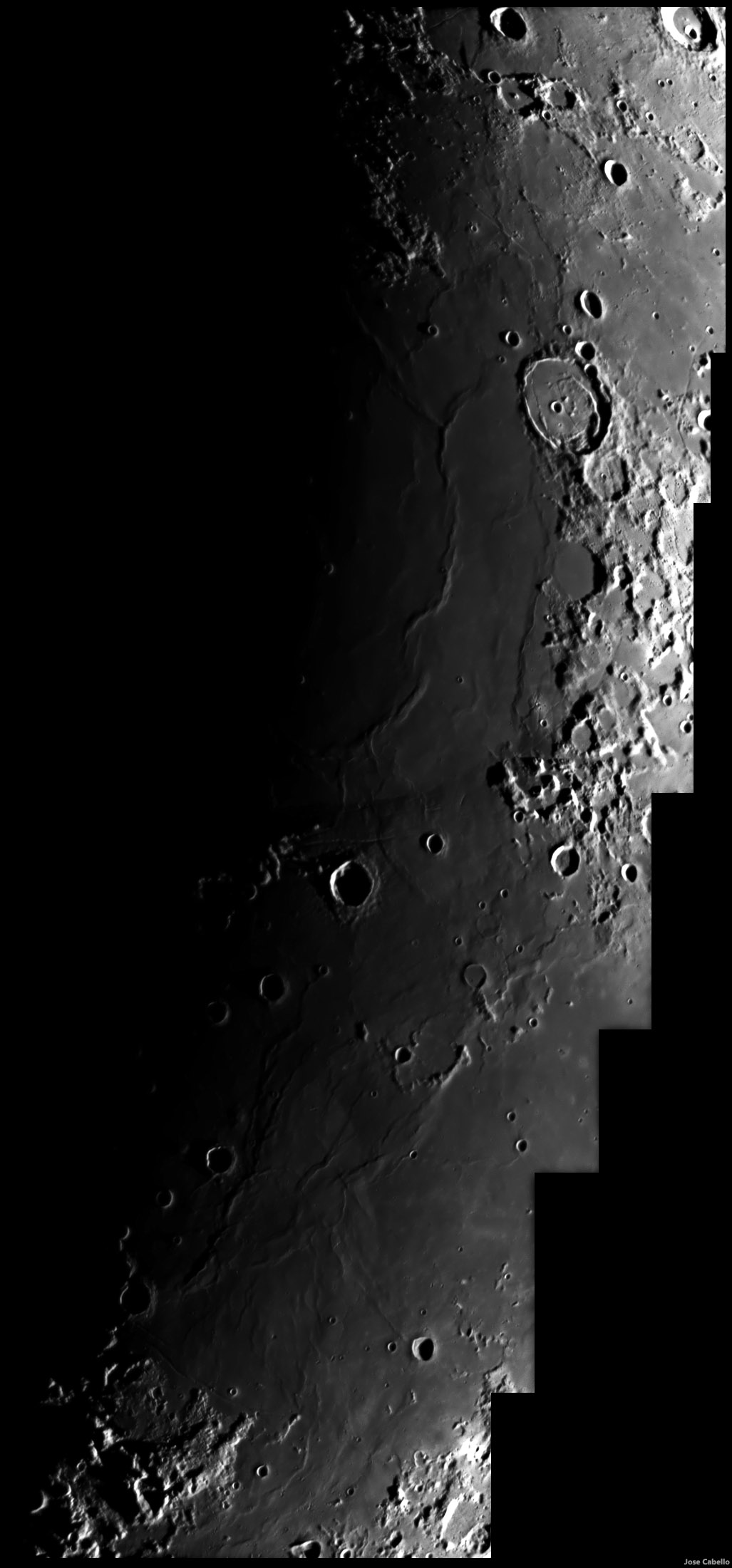October 31, 2024
Eyepiece Views
Originally published June 4, 2014

image by Jose Cabello, Málaga, España
Just as I was about to go out and set up my 4" refractor I received Jose's image from his observations earlier in the evening in Spain. And this image may be all I get tonight for the mostly clear sky of an hour ago is now almost totally cloudy. But I am still a little hopeful because my Clear Sky chart shows mostly blue. ... It's now more than an hour later, and the chart was right. Although there were some clouds and lightning to the south, the western sky became completely clear and I spent a lot of time looking at the Moon and comparing my older eyepieces with three new ones. Visual observing is always a sobering experience. I observe so much less than I routinely see in images submitted to LPOD. Of course, my scopes are 4" and 6' apertures and most LPOD images, like this lone today, are from 11" and larger instruments. Tonight I looked and failed to see the Hypatia Rille (Highway 2 of Apollo 11 astronauts), the melt ponds on the northern rim of Theophilus, and any rilles inside Posidonius. Such experiences remind me how carefully classical lunar mappers worked 150 -200 years ago, capturing detail I can't see. I did notice how rapidly the lunar surface becomes too bright to easily see detail away from the terminator; in LPOD I almost always tweak images to show detail across a wide longitudinal swath, but that isn't what is observed visually. As for the new Zhumell Planetary eyepieces, I found they gave views marginally less crisp and less bright than my old University Optics orthoscopics, but the significantly wider fields of view and better eye relief made the new oculars most pleasant to use. I was surprised to see red/blue colors around the edges of Jupiter with the Zhumells; none was there with the orthoscopics. But with a closeout price of $45 the Zhumells are good deals, especially since they seem to be the exact same eyepiece Orion sells for $110.
Chuck Wood
Technical Details
2014/JUN/03. C11 prime focus + DMK21au618 + IR-Pass 685nm
Related Links
21st Century Atlas chart 8 & B5.
Yesterday's LPOD: Observe Yangel Pyroclastics
Tomorrow's LPOD: To the Moon and Beyond
COMMENTS?
Register, Log in, and join in the comments.



